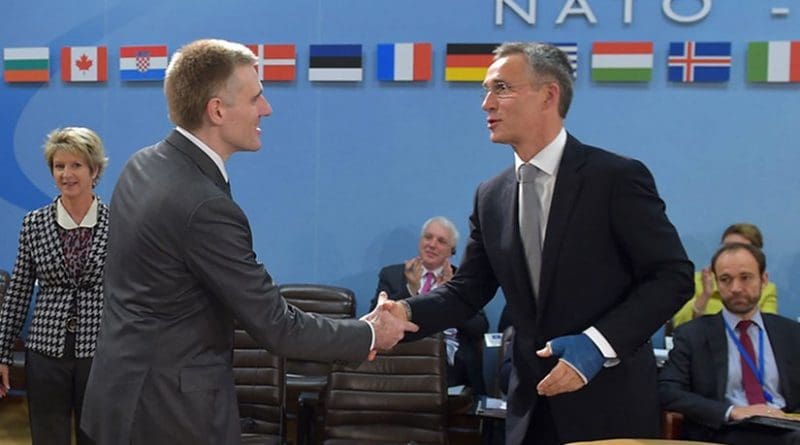US Senators To Vote On Montenegro’s NATO Bid
By Dusica Tomovic
The US Senate is expected to vote on Wednesday on the ratification of the protocol on Montenegro’s accession to NATO, which would mark the final step in the Balkan country’s membership process.
The Senate’s vote is taking place amid some doubts raised in the US and local media that the 100-seat house will approve the protocol due to expectations of warmer relations between Moscow and Washington after Donald Trump becomes president.
Russia, once Montenegro’s close ally, strongly opposes any NATO expansion, which some US-based experts see as an obstacle for the protocol to secure two-thirds majority in the Senate in the light of the impending Trump presidency.
Russia’s allies and followers in Montenegro hope that the friendlier attitude towards Moscow being displayed by Trump could mean that the ratification process becomes blocked in the US Senate.
Daniel Serwer, a professor at Johns Hopkins University in the US and an expert on the Balkans, voiced concern about the priorities of the incoming US administration but said he believes that no one in the Senate “wants to slow down the ratification under Russian influence”.
“If Trump fails to support Montenegro’s accession to NATO, there is a possibility that Montenegro falls into Russian hands,” Serwer told Montenegrin newspaper Pobjeda on Monday.
NATO officially endorsed the accession bid at its summit in Warsaw in 2016. So far, 22 of 28 NATO allies have officially approved the accession protocol and the endorsement of the US could signal others to give the green light.
Montenegro’s bid to become the 29th member of the alliance is strongly backed by the White House and the Pentagon.
The White House initiated the ratification process of Montenegro’s Accession Protocol to NATO on June 28, sending an initiative to the Senate for ratification.
“Montenegro’s accession to NATO will demonstrate to other countries in the Balkans and beyond that NATO’s door remains open to nations that undertake the reforms necessary to meet NATO’s requirements and contribute to the security of the Alliance, and is yet another milestone in advancing the Euro-Atlantic integration of the Balkans,” President Obama’s initiative read.
Some media commentators in Washington have suggested however that Montenegro’s membership would be more trouble than it is worth.
In a comment published by Forbes magazine on December 4, Doug Bandow dismissed tiny Montenegro as a “military midget”, and said the Senate should not ratify its membership of NATO.
“The Balkans obviously is of more interest to Russia and Europe than to America. Adding Podgorica to NATO would make the world more dangerous for the US in order to take a symbolic slap at Moscow,” Bandow wrote.
In December, several other influential US magazines and analysts also raised doubts about Montenegro’s NATO membership, saying it could cause additional problems in Washington-Moscow relations – which Trump has said he wishes to improve.
In an opinion piece titled “Does NATO Need Montenegro?”, US analyst Charles Pena wrote in The National Interest magazine that Montenegro would contribute little to the alliance.
Pena said Montenegro adds no real assets – economic or military – to the alliance.
Secondly, he noted, under Article 5 of the NATO charter, the US would become obliged to defend a country that is irrelevant to its own national security.
Montenegro signed the accession protocol with NATO on May 19, marking the final stage of the country’s path to full membership of the alliance. The process is expected to take about a year-and-a-half but will be complete only when US lawmakers have ratified the protocol.
Montenegrins remain sharply divided about joining NATO and a recent poll suggested only about 45 per cent of the population support membership.
NATO remains especially controversial among members of Montenegro’s large ethnic Serbian community because of the role it played in enabling neighbouring Kosovo to break away from Serbia.
Many Serbs also resent the way the country’s pro-Western government has loosened ties with Montenegro’s traditional ally, Russia.
– See more at: http://www.balkaninsight.com/en/article/us-senators-set-to-vote-montenegro-s-nato-bid-01-10-2017#sthash.L7P4Mf0c.dpuf

